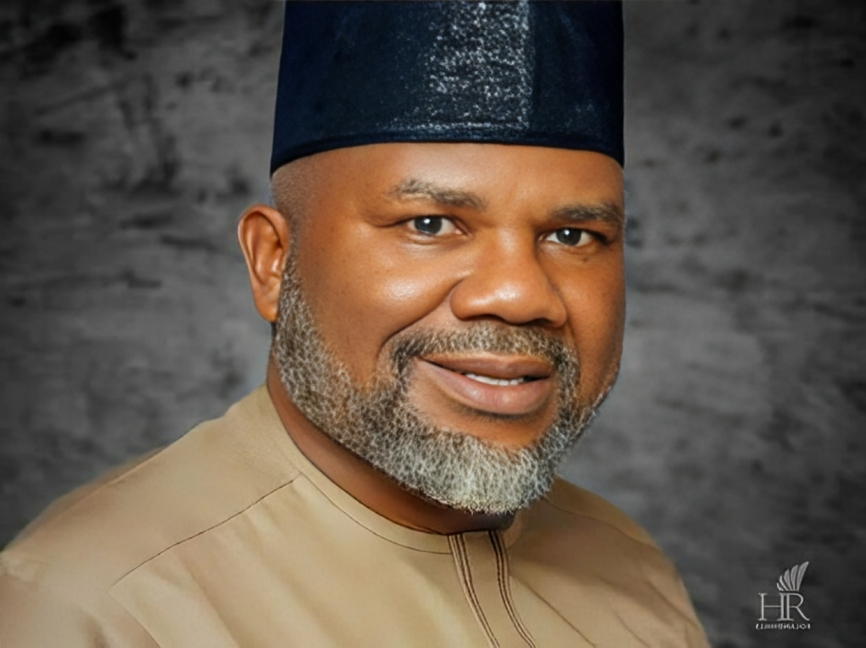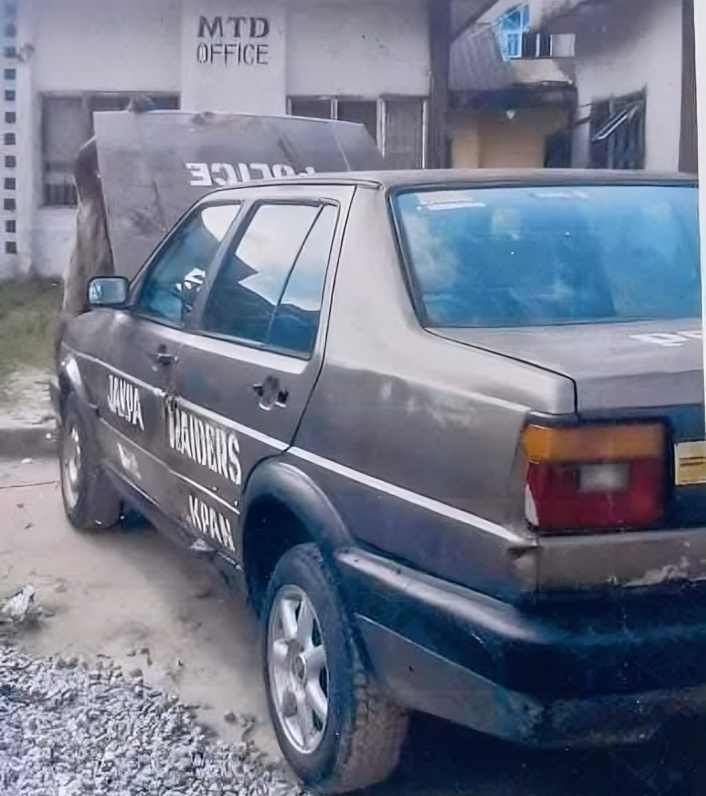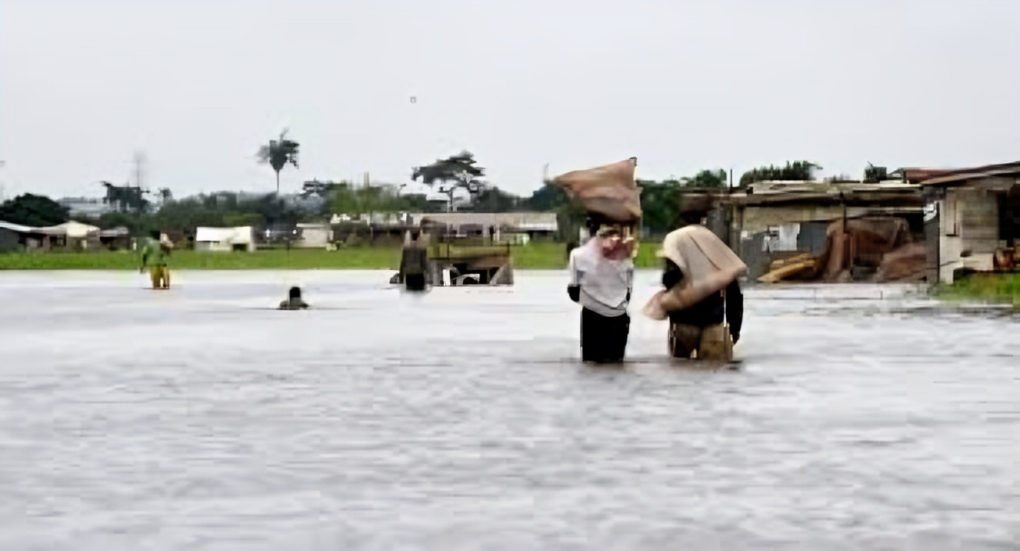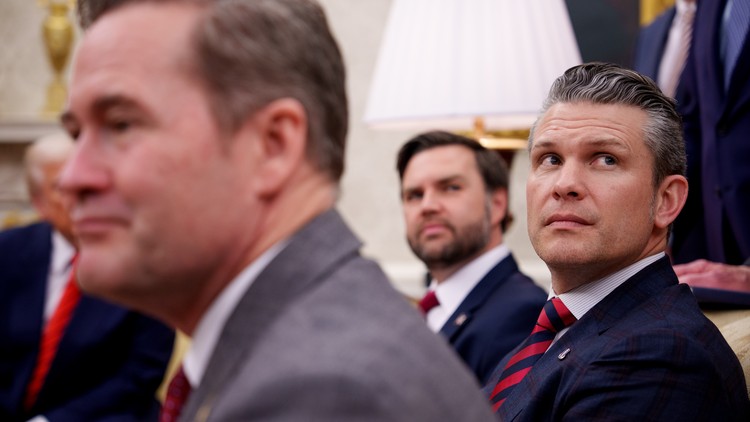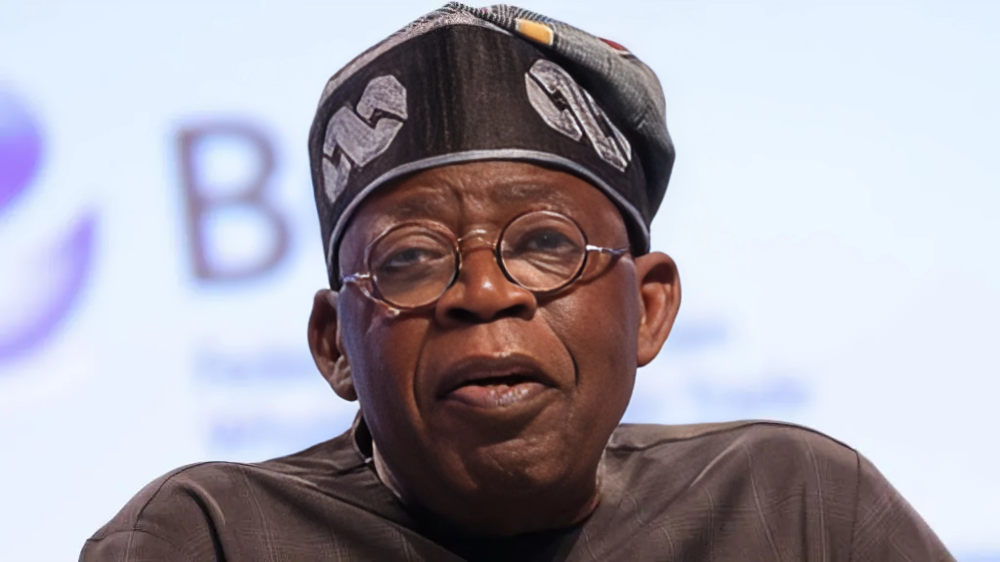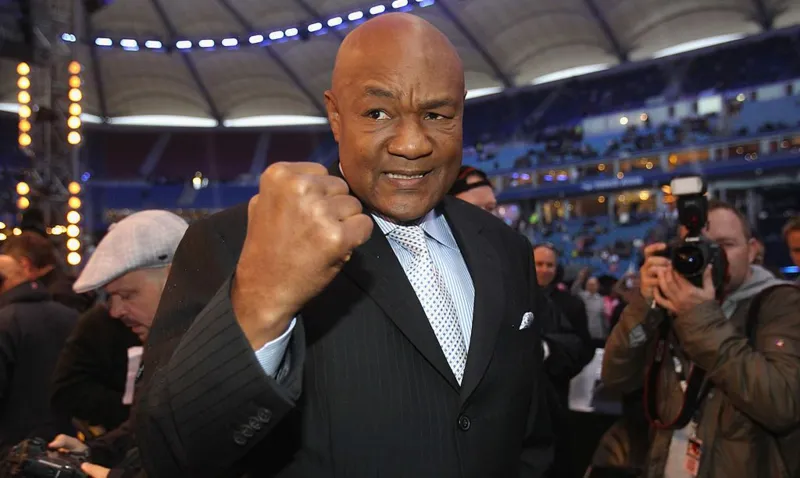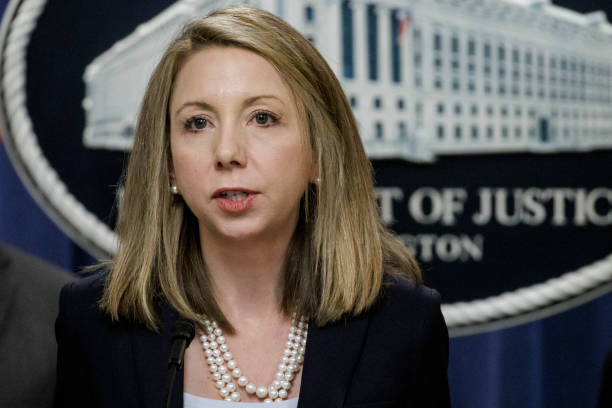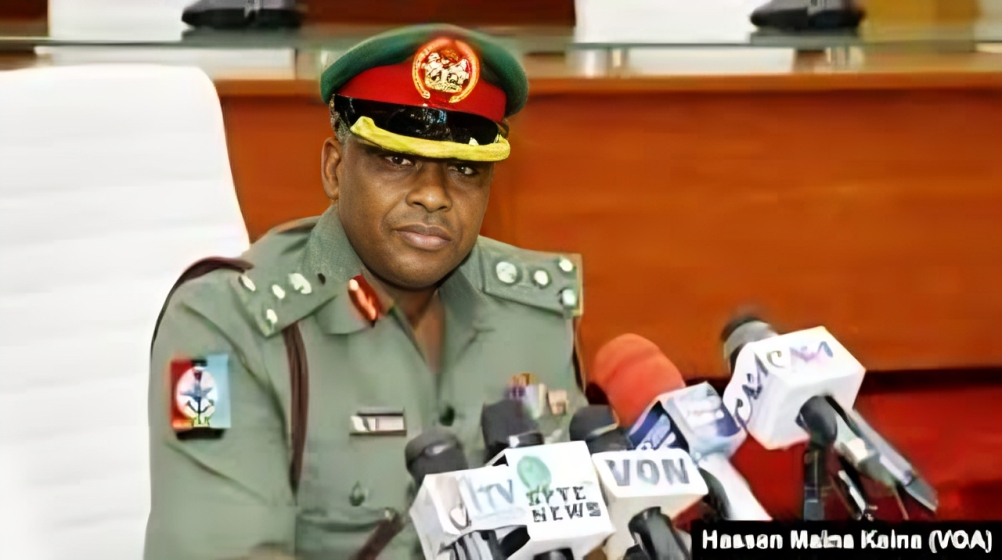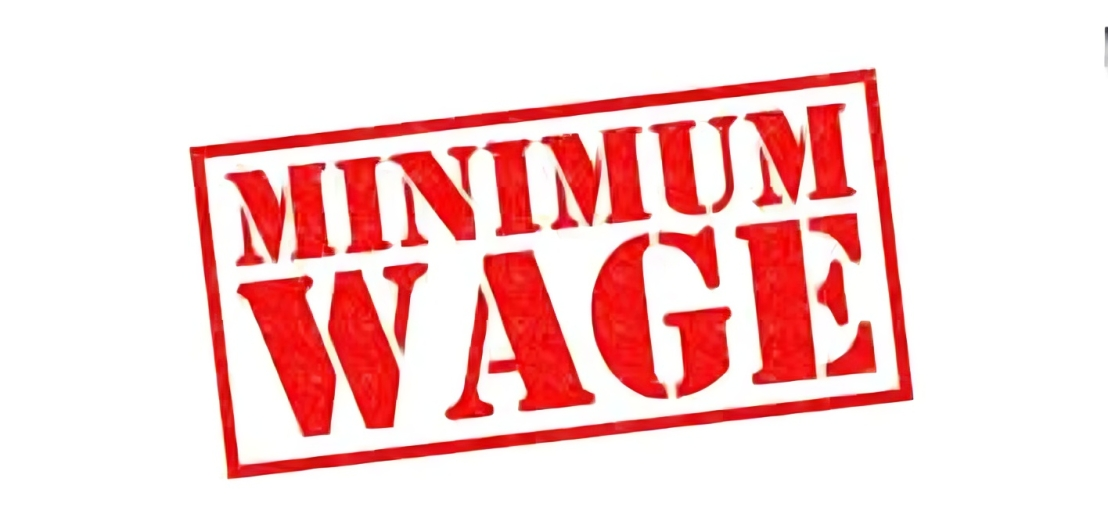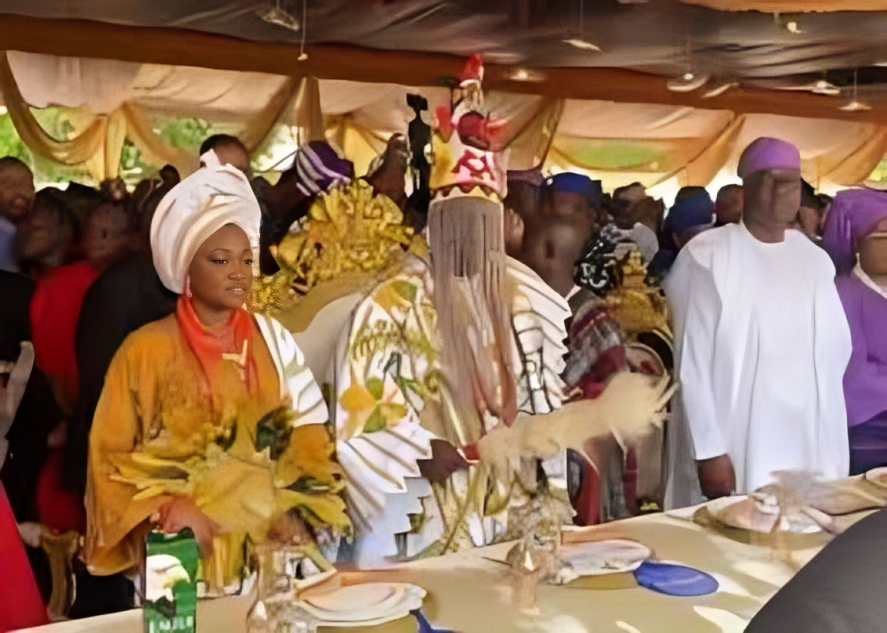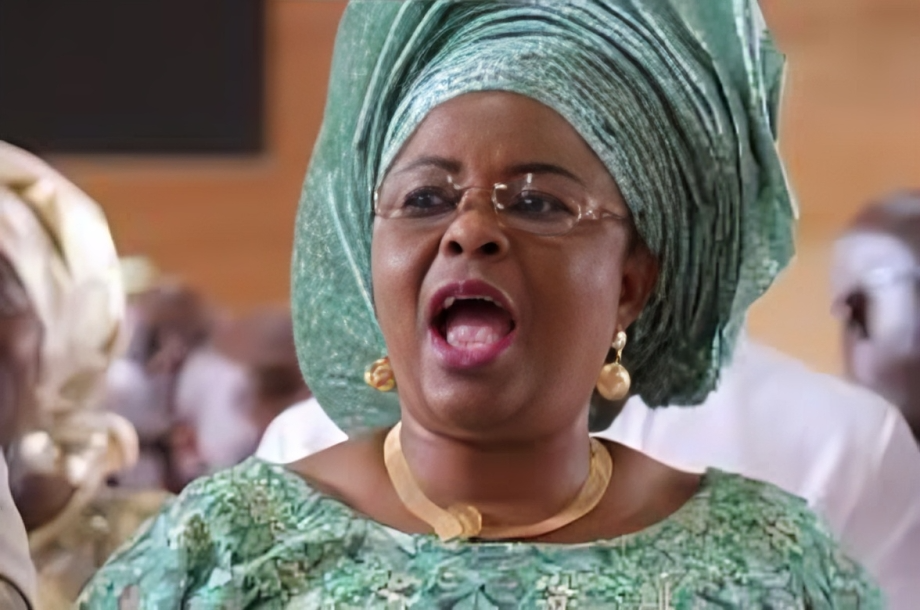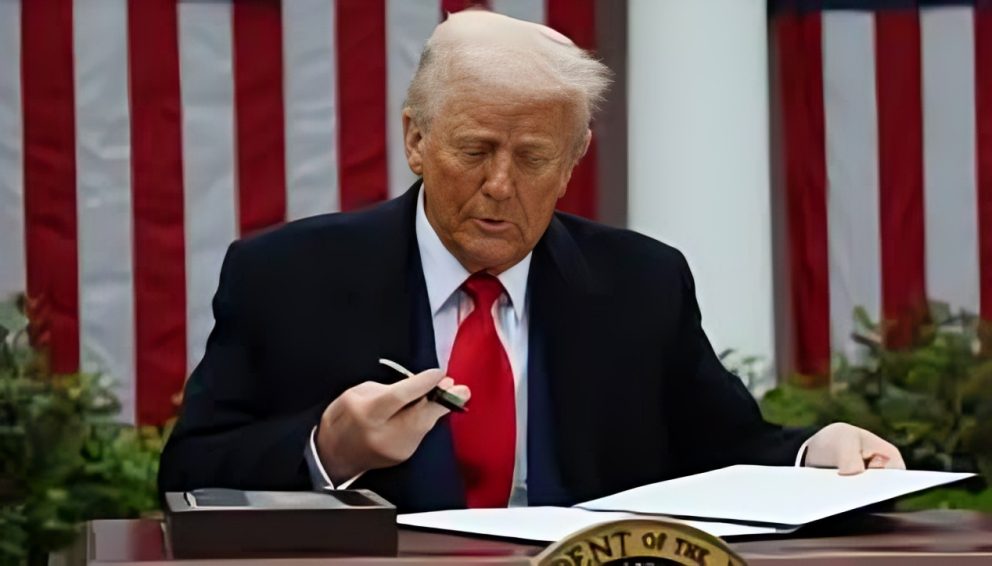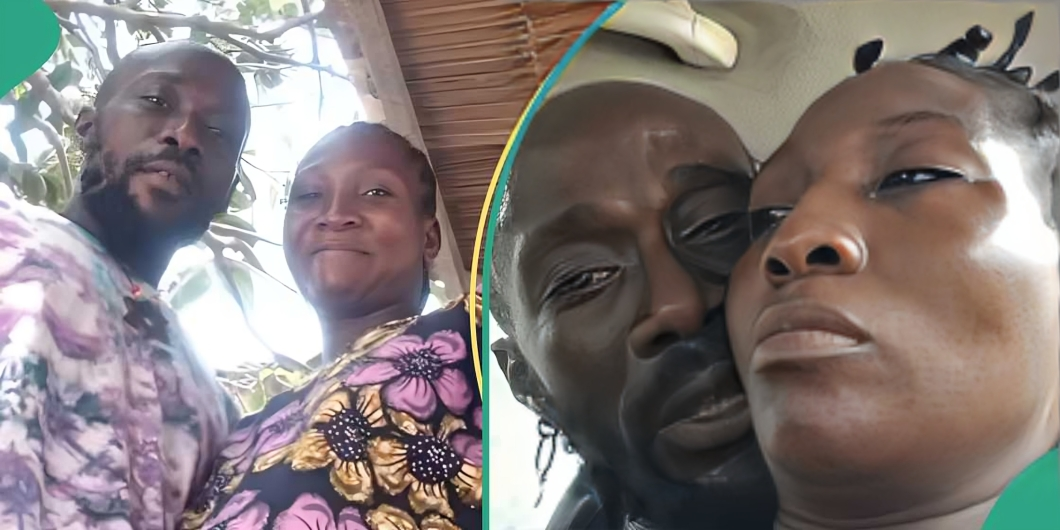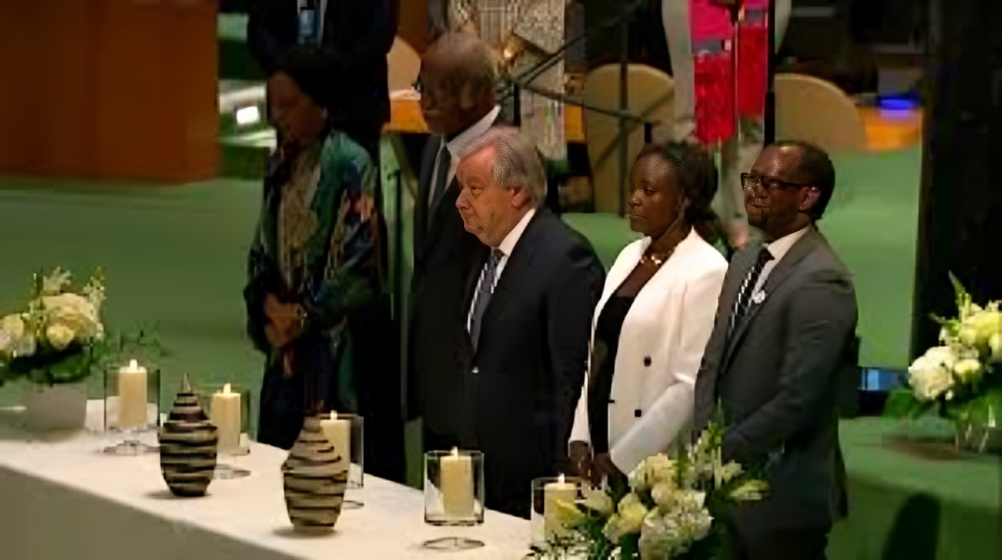
Rwanda's High Commissioner in Nigeria, Christophe Bazivamo, is known for global cooperation contrary to genocide ideology to prevent the recurrence of such atrocious acts as the 1994 genocide in Rwanda.
Speaking on Monday at the 31st Genocide Against the Tutsi Commemoration, also known as Kwibuka31, in Abuja, he made the remarks.
The commemoration, which was organized in alliance with the Nigerian government and the United Nations in Nigeria, brought together individuals from various walks of life and emphasized the theme "Remember-Unite-Renew.
In his address, Bazivamo highlighted that Kwibuka is not merely a time for remembrance but a global appeal to confront historical facts, fight against denial of genocide, and reclaim the victims' dignity.
"Guided by the slogan "Remember—Unite— Renew," we gather today to recall the past, strengthen our solidarity, and rededicate ourselves to a genocide-free future.
"Kwibuka, to remember in Kinyarwanda, is not just a ritual of remembrance. It is a global and national call to confront historical reality, uphold dignity, and battle genocide denial and revisionism."
This commemoration also compels us to speak clearly of the responsibility of the international community, whose silence in 1994 cost more than a million lives," he lamented.
He called for increased solidarity for the 1948 UN Genocide Convention and UN Security Council Resolution 2150, both of which demand genocide prevention and trial of perpetrators.
The ambassador condemned genocide denial and revisionism, which continue to undermine Rwanda's healing and rebuilding process.
He reaffirmed Rwanda's determination to combat genocide ideology both domestically and globally and the importance of engaging the international community, such as Nigeria, to build a peaceful and prosperous continent.
The High Commissioner appealed, "Today, when we see growing instability in the region, Rwanda calls for a renewed commitment to the principles enshrined in the 1948 UN Genocide Convention and UN Security Council Resolution 2150.
"These tools create a moral
and legal obligation on all states to combat genocide ideology, prosecute or extradite genocide fugitives, and make "Never Again" not a slogan, but a commitment."
We also see with concern the continued promotion of genocide denial and revisionism in particular quarters and states.
In his parting remarks, Bazivamo urged attendees to honor the memory of the victims, stand together with survivors, and pledge to make sure that genocide ideology never happens again.
Besides, the United Nations Secretary-General Antonio Guterres summoned the world to "learn from the experience of the 1994 Rwandan Genocide and take measures to stop the proliferation of hate speech, polarization, and discontent, which are turning into violence in most countries."
He also emphasized the importance of upholding human rights and accountability in order to prevent potential genocidal acts.
His words were read by the UN Women's Country Representative to Nigeria, Beatrice Eyong.
Rwanda began a week of commemoration on Monday, marking the 31st anniversary of the 1994 genocide of the Tutsi ethnic minority.
President Paul Kagame and First Lady Jeannette Kagame, with the dean of the diplomatic corps in Kigali and representatives of genocide survivors, laid wreaths at the Kigali Genocide Memorial, where over 250,000 victims lie.
The Kagames later lit the "Flame of Remembrance" at the memorial, which represents hope and resilience, that will burn for 100 days—the duration of the genocide.
In his speech, Kagame vowed that genocide would never recur in Rwanda. He assured that this would not be because the brains behind the atrocity would never attempt it again, but because Rwandans have chosen to be united so that it is never repeated.
"Whatever did not kill us and complete us 31 years ago has made us resilient, prepared for the evil that will always come at any time. We won't die fighting like before," he said.
The United Nations and the African Union in 2014 announced April 7 as a remembrance day of the 1994 Genocide against the Tutsi.
In committing the 100-day genocide in 1994, more than a million people—largely Tutsis and moderate Hutus—were murdered by Hutu extremists.
It is a time when Rwanda does not stand alone, but with the world — with our brothers and sisters in Africa and with friends in Nigeria — to reaffirm that Never Again must be more than a slogan. It must be a guiding principle," the envoy continued.
He identified the crucial role played by genocide survivors, who are among those who have utilized their agony to be a source of positive transformation, in particular through initiatives such as the Gacaca courts and Rwanda's national reconciliation program.
He referred to, "In spite of the magnitude of this task, Rwanda's Government of National Unity under the leadership of H.E. Paul Kagame made a conscious decision to place reconciliation first."
The concept of "Ndi Umunyarwanda" (I am Rwandan) was central to the process of rebuilding. It demanded a common identity over ethnic lines, forcing all Rwandans to think of themselves as one people, united in their shared history and destiny. That sense of oneness was the basis upon which Rwanda began to heal and rebuild."
This path has not been smooth. We are thankful for the work of survivors, who have transformed their suffering into an engine for healing and good.
Although significant progress has been made in Rwanda's recovery, the High Commissioner said there are still challenges, including ongoing regional security issues.
He specifically mentioned the Democratic Republic of the Congo, where genocidal elements remain active. Bazivamo also sounded a warning about hate speech and propaganda, indicating that the tone seen during the 1994 genocide was reappearing in the region.
Bazivamo also mentioned the lukewarm international community response to the issues, urging nations to collaborate in the fight against genocide ideology.
"Today we hear gut-freezing hate speeches, demonizing propaganda, and exterminatory calls—of the same order made prior to 1994 in Rwanda. Thousands of persons have been made homeless, yet the international response is catastrophically low-key."
We must not forget that Rwanda issued a warning to the world once before. The cost of discounting hate is too steep to bear again. This is not Rwanda's battle alone; it needs the immediate and collective concern of the entire international community."

